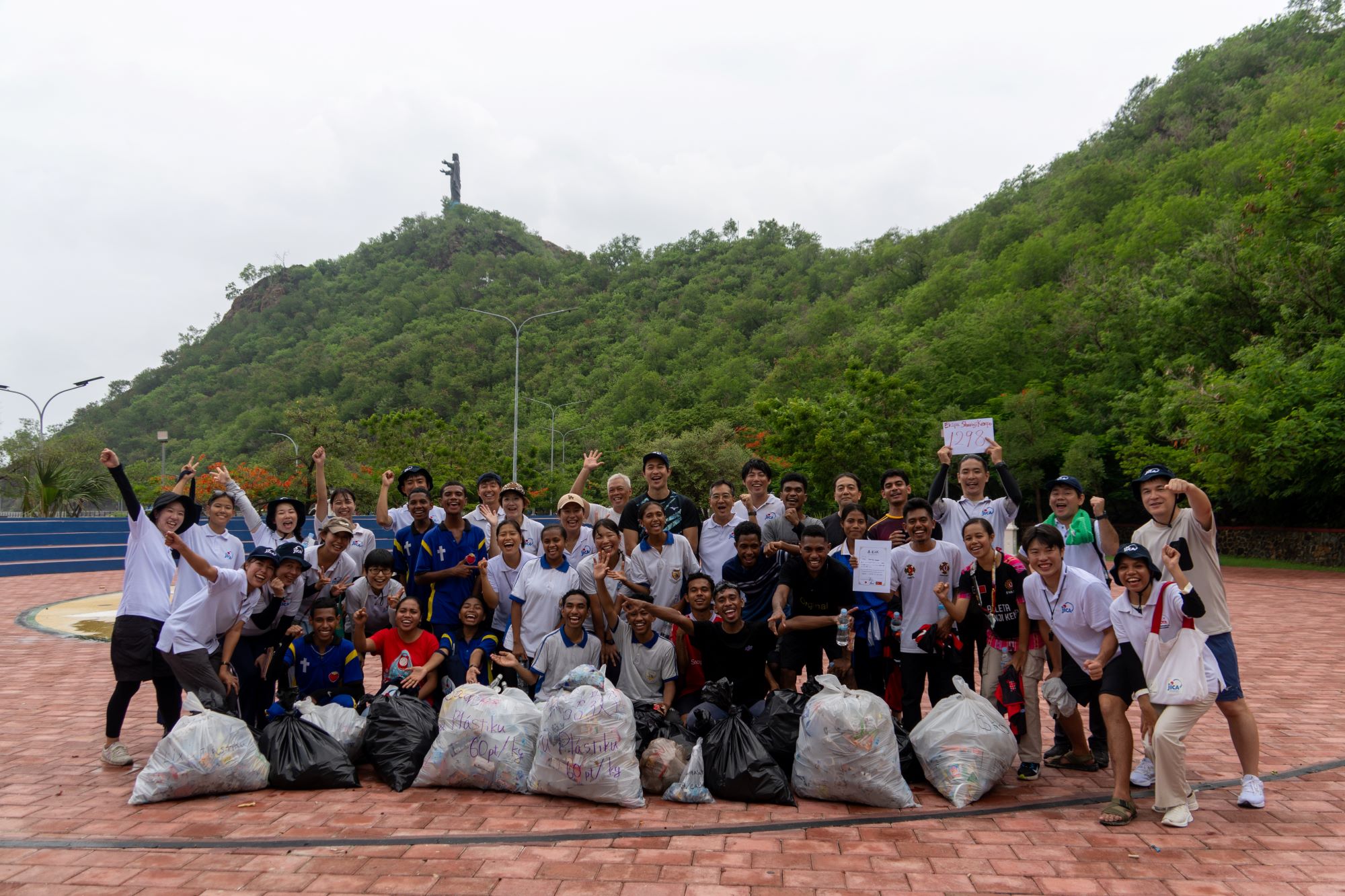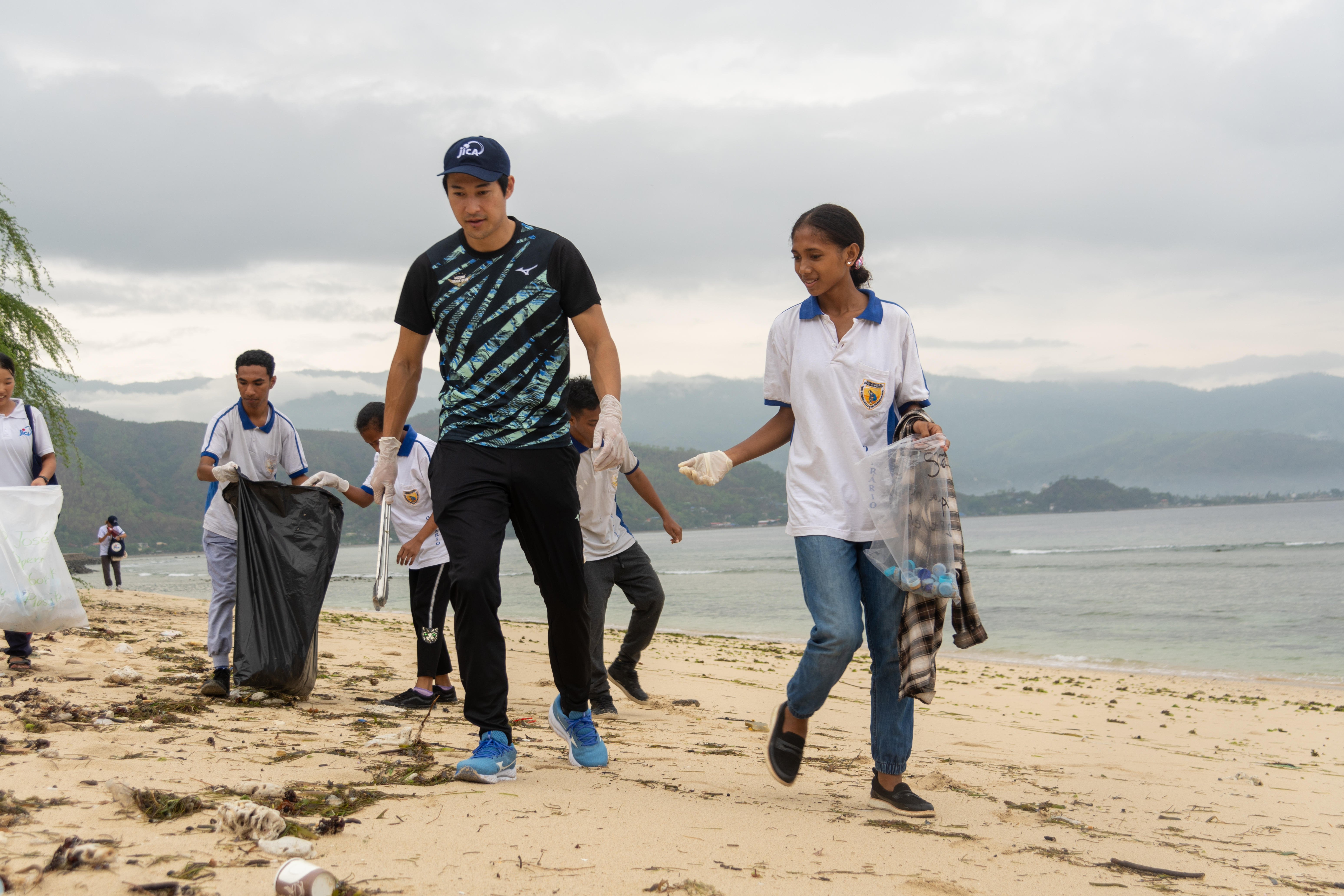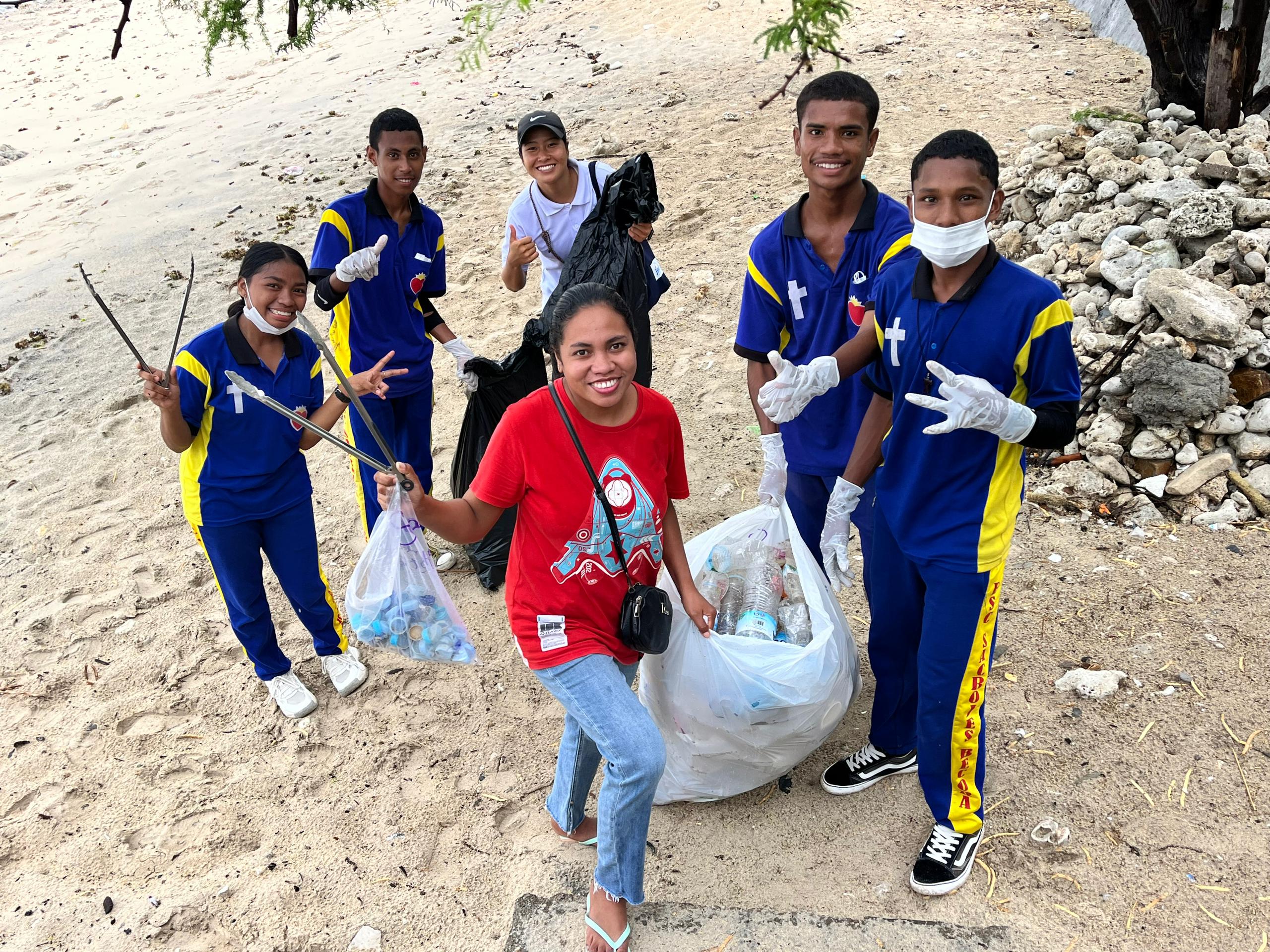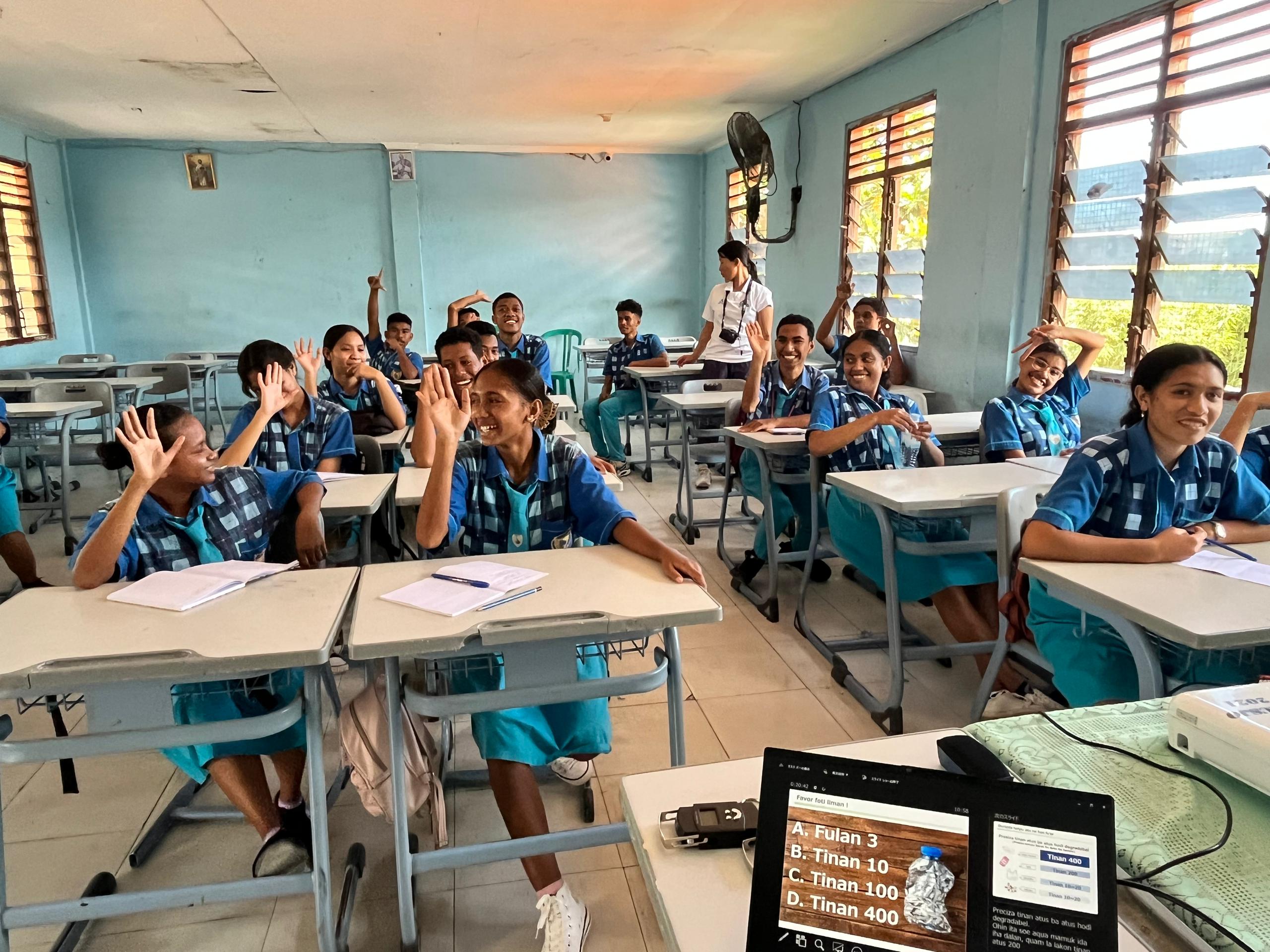The Potential of Environmental Education × Sports
2024.12.24

Environmental Education Arisa Minoru (2023/3 batch )
From November 30th to December 4th, Shota Iizuka, an active track and field relay sprinter, visited Timor-Leste. My job is environmental education, and I had the opportunity to plan a trash picking competition based on a sport called SpoGOMI with a Timor-Leste twist. SpoGOMI is a sport that incorporates the essence of sports into trash picking. Unlike regular trash picking, teams pick up trash and compete for the total points according to the type and weight of the trash. The event was held at Cristo Rei Beach, a tourist attraction.
On the day, students from elementary school to university, Shorinji Kempo, and Japanese language classes gathered, and a total of seven teams ran out to the beach to pick up trash at the start of the signal.


Timor-Leste is a beautiful country rich in nature, but at the same time, waste is a serious problem. According to a survey conducted by JICA this year, the waste collection rate in Dili is about 60%, and about 303 tons of trash are generated every day, but about 112 tons of that is left uncollected and dumped on the roads, flowing into rivers and the sea with rain.
.jpg)
Although the government is gradually improving the waste collection system, littering will continue, and the fundamental problem will not be solved unless citizens' awareness of waste improves.
Until now, as part of our activities, we have visited schools and communities to give environmental education classes, but we were thinking about how to go beyond the simple form of classes and learn about and practice environmental issues in a fun and meaningful way, and a friend introduced me SpoGOMI. I thought that if I change the rule of giving more points to garbage with a large environmental impact, SpoGOMI could be an opportunity for children to learn about the types of garbage and the impact that garbage has on the environment. I never expected that Mr. Iizuka, an Olympic medalist, would participate, but we are grateful that he readily agreed to participate in SpoGOMI.
The Physical Education volunteers helped us plan and manage the event were also very cooperative, and during the preparation period, they accompanied me on tours to the Tibar garbage disposal site and a local recycling company to learn more about the country's environmental issues. We also visited the junior and senior high schools where the physical education team members are assigned, and as a special lesson, we explained the impact of plastic waste on nature and ecosystems, and held a 10-minute mini SpoGOMI. The students participated in the lesson very enthusiastically, and the trash that had fallen on the school grounds and beside the church was gradually cleaned up along with the children's lively conversations.


Unfortunately, the weather was bad on the day of SpoGOMI, but at Mr. Iizuka's suggestion, the location and rules were changed, and the event was held in light rain. The competition lasted 30 minutes, and it was impressive to see the children running around picking up trash until the last second of the countdown to the end. In the end, all the teams were able to collect a total of 73.5 kg of trash and 1,273 plastic bottle caps. I was glad that the students were able to separate the trash properly, thanks to the lessons in advance and the support of other volunteers. After SpoGOMI, the children enjoyed playing beach flags with Mr. Iizuka on the cleaned-up beach.
It is significant that a top athlete like Mr. Iizuka has seriously addressed the garbage problem in Dili. It was impressive for the children to see an athlete who has made a name for himself on the world stage of the Olympics looking at the environmental issues of this country and picking up garbage with tongs instead of a baton, and I think it was an important opportunity for them to think about the environmental issues of their own country.
The environmental education is not directly related to infrastructure construction or system introduction. However, through "education", it can provide a small opportunity to change people's way of thinking and behavior. Seeing the children's satisfaction after completing SpoGOMI, I was able to recognize my own mission once again. It is a common sight to see children in Timor-Leste running around barefoot on the roadside, but there is always garbage nearby. I hope that Mr. Iizuka's visit and the implementation of SpoGOMI and UNDOUKAI will further promote sports in this country, and I would like to do my best to spread the idea of environmental education through sports and ensure that this country will remain beautiful forever.
scroll